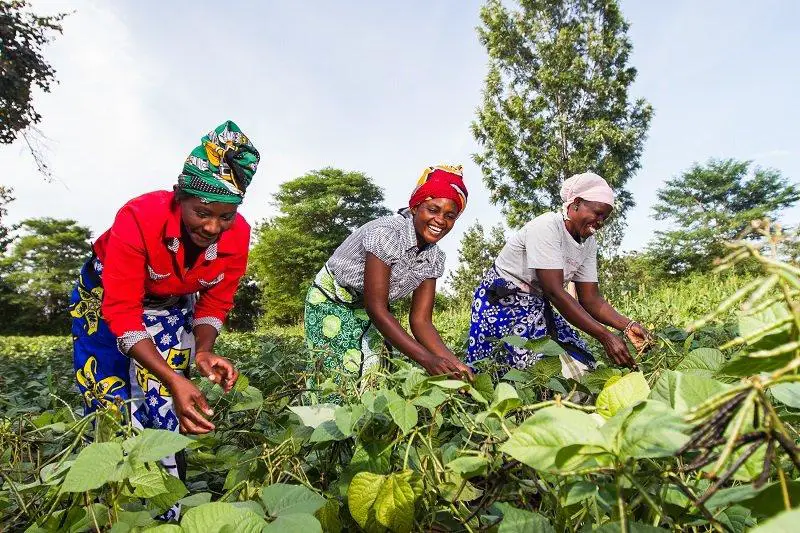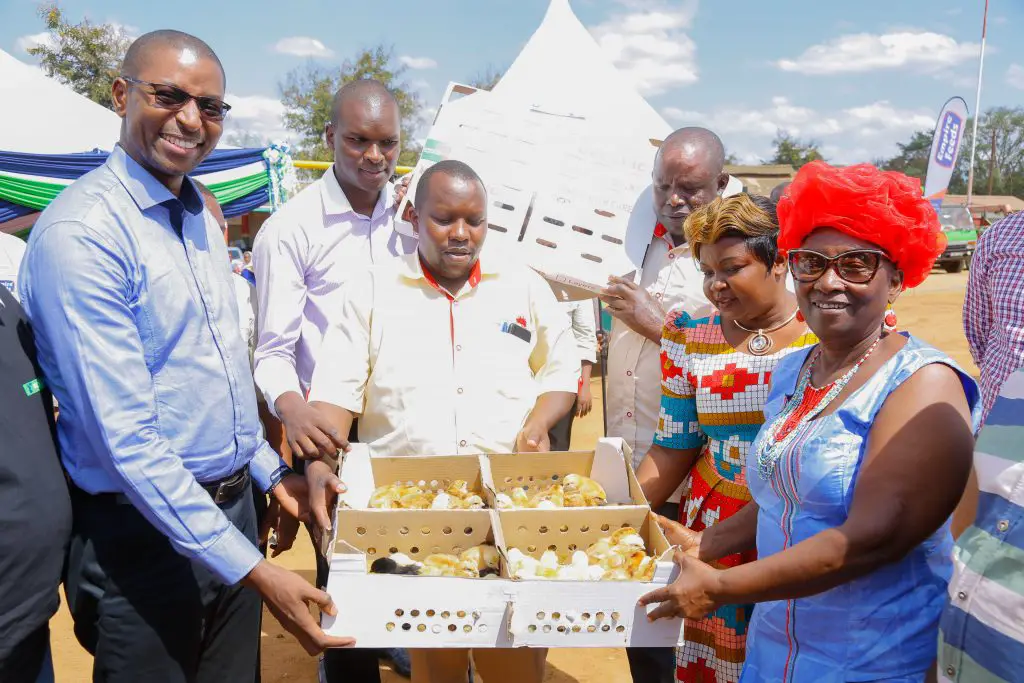- How transition finance can catalyse Africa’s green industrial revolution
- Stanbic PMI Report: Mixed performance as Kenya’s agriculture, construction offset manufacturing decline
- Uganda’s land management gets a tech makeover to boost transparency
- Nigeria’s output dips fastest in 19 months on a sharp rise in costs
- Apple faces growing backlash over Congo exploitation
- Why East Africa is staring at higher wheat prices in 2025
- Nairobi Gate SEZ pumps $7 million into Kenya’s agro-processing industry
- What impact will the US election have on Africa?
Browsing: Agribusiness
In the months surrounding the birth of our own republic, from 1961 to 1963, a crucial, international organisation was also being born, to assure food safety across the globe.
As a partnership between the Food and Agriculture Organisation of the United Nations and the World Health Organisation, the Codex Alimentarius Commission produces the Codex Alimentarius, which is Latin for the ‘Book of Food’. It contains internationally recognised guidelines, standards, codes of practice and recommendations on food safety, with just two goals: to ensure the health of consumers and fair trade in food.
Yet, today, both are under threat.
Over the 60 years since the Codex was launched, the commission has been led by the world’s top scientists, drawing on every global study to set food safety standards that include assessing pesticides for their impact on human health. To do that, Codex sets Maximum…
SMEs are the major contributor to investments in the agricultural sector in Africa. In most cases, most African enterprises are run as opportunistic arbitrage entities keen on profiting from demand/ supply disparities because of a lack of substantial capital.
Investment into value addition business is limited in this sector due to challenges arising from lack of finance, poor access to markets, and lack of supporting policies. The continent’s main formal economic activity is agriculture, contributing 80% to the region’s employment.
Snapshot of the industry
Crocodile farming is an agricultural niche that holds vast potential for profit-making and value addition for SMEs. The risk of failure in this market segment is relatively low because of farming support systems and a readily available high-demand market.
The sector generates hundreds of millions in exports through the global demand for crocodile skins.
Other uses and income-generating avenues from this farming venture include …
Standard Bank and UN Women have come together to equip African women in agriculture with skills and resources to grow their businesses for long term success.
In October last year, the two organisations partnered to empower more than 50,000 women in South Africa, Uganda, Malawi and Nigeria through modern and environmental friendly farming technologies that increase incomes and productivity.
Local farmer organisations and cooperatives, women farmers and authorities are now able to address structural inequalities in rural economies in Africa, beginning with difficulties that women face in securing tenure for quality farmland through the Climate Smart Agriculture (CSA) collaboration.
Funding worth $3 million has been provided by Standard Bank as well as ongoing support through financial literacy and other programmes.
“The CSA project supports Standard Bank’s drive to create a gender-equal Africa and aligns with our purpose of driving the continent’s growth. We believe it will meaningfully contribute to the …
Kenya is working on designing programmes to promote youth investments in agribusiness.
The programmes include providing access to markets for youth in agribusiness, access to affordable and youth friendly financial services for agri-preneurship, which could be done in form of seed capital as well as establishing innovative information and knowledge sharing platforms.
Speaking during the East African Youth Congress Trust Webinar Livestock, Fisheries and Cooperatives Ministry’s Chief Administrative Secretary Anne Nyaga said the programmes are being addressed through strong collaborations and partnerships aimed at supporting the youth in the country in the wake of Covid-19 pandemic that has seen over 700, 000 people lose their jobs.
“The Ministry and other relevant bodies are working together to not only create an enabling environment for the youth to explore business opportunities along agricultural value chains, online marketing/e-commerce of agricultural products locally and regionally but also come up with trusted digital networks to …
The Tanzania Horticultural Association (Taha) is reporting an increase in revenue from the export of avocados which until now were not considered key export cash crop.
However growing demand in the US and Europe has seen the sub-sector increase revenue to US$23 million annually.
Tanzania is the second largest producer of avocado fruit in Africa second only to Kenya. Over the past five years, avocado exports have leap-frogged from 1,877 tonnes in 2014 to 9,000 tonnes in 2019 and were it not for the COVID-19 outbreak, this figure was expected to go higher.
Also Read: COVID-19 response must target African agriculture and the rural poor
Kenya is already doing much better with its estimated annual output of about 190,000 tonnes as the country exports an average of 10,000 metric tonnes annually.
In Tanzania, there are about 10,000 farmers of the crop who
It feels very appropriate to talk about investing in disruptive innovation at a time when all of our lives have been so seriously disrupted by Covid-19.
Many investors are drawn to the “retail” investments peddled by banks and insurers. Huge amounts of money are given to East African governments in the form of Treasury Bonds and Bills that pay between 9% and 15% per annum before withholding taxes are applied. And post-Covid what will your KES, UGX, ZAR, TZS or RFR actually be worth? And how safe do you think East African government debt will actually be? The default investment for many East Africans has traditionally been property but in a damaged economy property looks like the most illiquid of assets – and a likely victim of a global correction in prices.
Of course there is a place for retail investments – low risk, short and fixed terms, average
This article aims to highlight the challenges and implications of COVID-19 in the agricultural sector using current industry trends and outcomes to forecast the impact of the pandemic on agricultural value chains and consumer behaviour in the short, medium and long term. Most importantly, however, this report proffers actionable innovations and systems that can be adopted and scaled up to negate the effects of the pandemic on food supplies to urban areas and industrial processors in Nigeria.
WHERE WE ARE NOW:
Short term (1-3months)
- Disruption of supply chains due to inter and intrastate border closures. An example being the pileup of trucks on the Kano-Kaduna road due to shutdowns on what is a key route for national grain distribution.
- The stock of grains does not seem to be hampered but there is a risk it will if the
This article aims to highlight the challenges and implications of COVID-19 in the agricultural sector using current industry trends and outcomes to forecast the impact of the pandemic on agricultural value chains and consumer behaviour in the short, medium and long term. Most importantly, however, this report proffers actionable innovations and systems that can be adopted and scaled up to negate the effects of the pandemic on food supplies to urban areas and industrial processors in Nigeria.
Short term (1-3months)
- Disruption of supply chains due to inter and intrastate border closures. An example being the pileup of trucks on the Kano-Kaduna road due to shutdowns on what is a key route for national grain distribution.
- The stock of grains does not seem to be hampered but there is a risk it will if the current situation persists for a period longer than 3-4 months. The
If any of us were given a warning by an alien, in a language we did not understand, with symbols we had never seen before, we would not emerge warned–which is a fact that is now driving legislative reform in Kenya to ensure warnings on pest control products are understandable to every farmer. The aim is to ensure farmers reap far higher yields without causing any damage to themselves or their land.
As it is, pest control products used in Kenya have been through around nine years of safety testing and more than 100 kinds of tests in order to gain approval for use in their countries of origin, such as the US, Australia and other national regimes that only approve pesticides when they are proven to be risk-free for the prescribed use.
Until they have achieved that, Kenya’s law prohibits their use in Kenya.
But even once they have…
KCB Bank Kenya has launched a Ksh300 million (US$2.9 million) poultry farmer empowerment project in Makueni County, in its latest move to support agribusiness in Kenya.
This will see over 1,000 poultry farmers in Kibwezi benefit from credit facilities, capital, vaccinated insured chicks, chicken feed and vaccines.
The project will be offered under KCB MobiGrow, a mobile-based platform which provides financial and non-financial services to smallholder farmers in Kenya and Rwanda.
Under the project dubbed, ‘From Chick to Market’, poultry farmers will access various tailor-made MobiGrow services.
Upon maturity, the chicken will be bought at a pre-contracted price by KCB market partners, guaranteeing farmers of a ready market.
Proceeds from the sales will then be remitted to farmers through their KCB MobiGrow accounts to ensure the recovery of loan amounts.
“We are committed to growing agribusiness in the country. We continue to accelerate access to financial services which is in …








